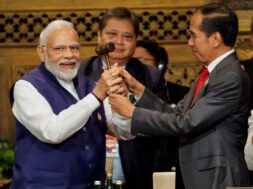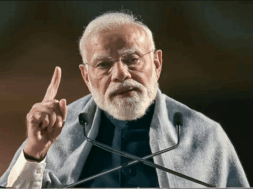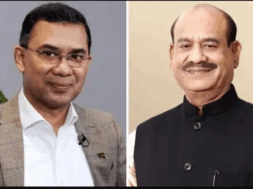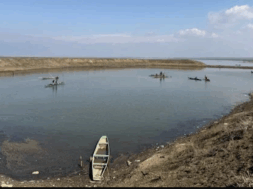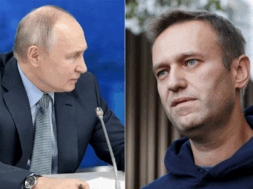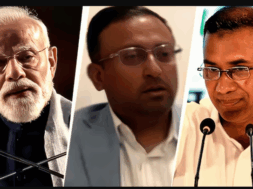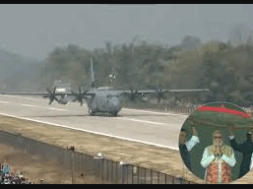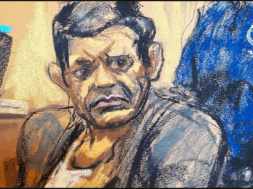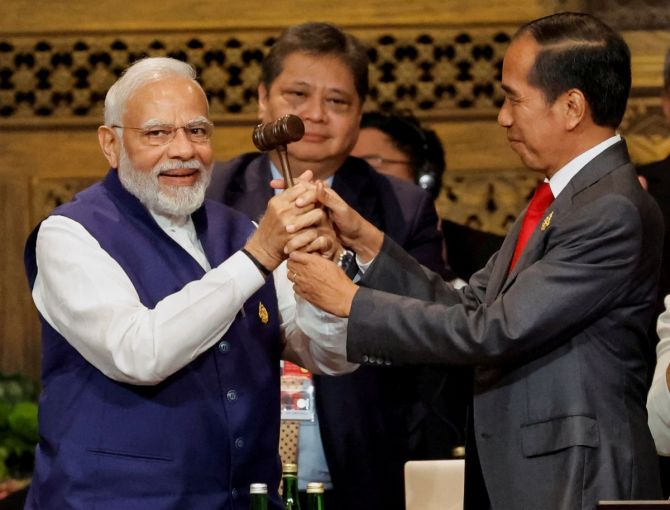
India Handed over G-20 Presidency for 2023
Manas Dasgupta
NEW DELHI, Nov 16: The prime minister Narendra Modi termed it a matter of pride for every Indian citizen as Indonesia on Wednesday handed over the G-20 Presidency to India for the coming year.
At a brief ceremony at the current summit in Bali, the Indonesian President Joko Widodo handed over the G-20 presidency to Modi at the conclusion of the two-day G-20 Summit here. “Together with every countries’ efforts, we can make the G-20 summit a catalyst for global welfare,” Mr. Modi said.
The handing over ceremony came as the member states finalised the joint declaration. Mr. Modi said India’s G-20 presidency will be inclusive, ambitious, decisive, and action-oriented, noting that the country is taking the charge at a time when the world is grappling with geopolitical tensions, economic slowdown and rising food and energy prices.
Modi said India would organise G-20 meetings in India at different cities and states. “Our guests will get full experience of India’s amazing diversity, inclusive traditions, and cultural richness. We wish that all of you will participate in this unique celebration in India, the ‘Mother of Democracy’,” he said.
Mr. Modi also listed India’s priorities for the G-20. “Over the next one year, we will strive to ensure that the G-20 acts as a global prime mover to envision new ideas and accelerate collective action,” he said. “The sense of ownership over natural resources is giving rise to conflict today, and has become the main cause of the plight of the environment. For the safe future of the planet, the sense of trusteeship is the solution,” he added.
Mr. Modi noted that LiFE that is a ‘Lifestyle for Environment’ campaign can make a big contribution to this. “Its purpose is to make sustainable lifestyles a mass movement.” The prime minister emphasised that the benefits of development are universal and all-inclusive. “We have to extend the benefits of development to all human beings with compassion and solidarity. Global development is not possible without women’s participation,” he said. Mr. Modi said the G-20 has to convey a strong message in favour of peace and harmony. “All these priorities are fully embodied in the theme of India’s G-20 Chairmanship — ‘One Earth, One Family, One Future’,” he said.
Earlier, delegations from the member states had differences on how to characterise the Russia – Ukraine war with Ukraine’s western allies said to be seeking outright condemnation of Moscow. There were fears earlier that the member states may not agree to a final document. G-20 declarations require consensus of all members.
The declaration was not immediately released. Though the main business of the Summit ended in the afternoon, heads from some countries — including India — had scheduled bilateral talks on its sidelines for later in the day. Mr. Modi was scheduled to leave Bali in the evening.
The G-20 comprises 19 countries: Argentina, Australia, Brazil, Canada, China, France, Germany, India, Indonesia, Italy, Japan, South Korea, Mexico, Russia, Saudi Arabia, South Africa, Turkey, the UK, the US and the European Union. The next summit will be held in New Delhi on September 9-10.
The Foreign Secretary Kwatra said the Indian delegation guided by the Prime Minister played a “key role” in the successful resolution of differences over the “outcome document.” He said the “particular global context” was reflected in the consensus documents. He said Mr. Modi’s observation that this is not an era of war and his advocacy of diplomacy and dialogue helped in reaching a “successful” outcome. His message helped in consensus building, Mr. Kwatra said.
Mr. Modi met French President Macron Emmanuel in the morning. After the closing ceremony he was scheduled to have bilateral meetings with leaders from Indonesia, the U. K., Australia, Germany and Singapore before leaving for Delhi. On Tuesday, he had brief formal meetings with U. S. President Joe Biden and Indonesian President Widodo.
